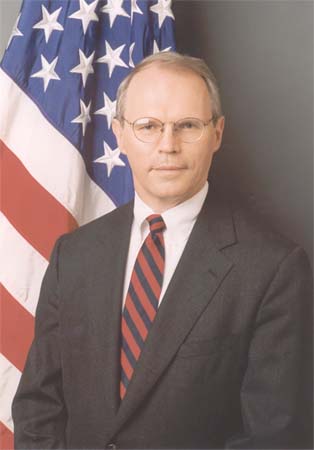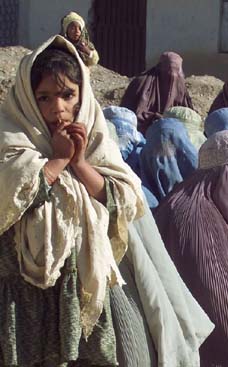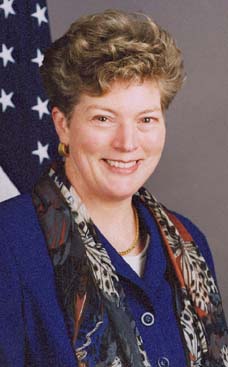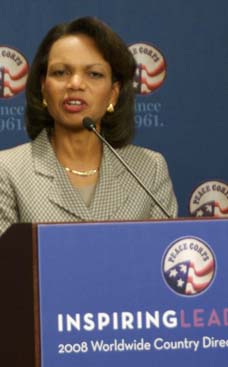
Hill is a protégé of Richard Holbrooke, the famously tenacious career diplomat who was himself influenced by Henry Kissinger, the legendary realist and White House operator. In the spirit of these mentors, Hill plowed over anyone who stood between him and the president's wishes. In May 2007, when North Korea protested a Treasury Department move to freeze some $25 million in allegedly illicit funds it held offshore, Hill led an effort to find a bank that would transfer the money back to Pyongyang. "We are not going to allow $25 million ... to get between us and a deal," Hill told the Korea Society at the time. A participant at a meeting of U.S. government officials involved in the dispute said he was startled by the pungent language Hill employed when discussing his Treasury counterparts in meetings with European government officials. "Hill is a forceful negotiator, and this deal will be as much his legacy as Bush's," said the participant, who did not want to be quoted recounting a closed-door session. "But he can be abrasive and he's not necessarily a team player." Still, on that occasion Hill needed Rice's help to break the stalemate. She persuaded U.S. Treasury Secretary Hank Paulson that the embargo on Pyongyang's overseas accounts had taught it a lesson—Washington could cut off North Korea's funds at will—and that lifting the embargo would offer the Kim Jong Il regime a face-saving way to return to the negotiating table. Christopher R. Hill, assistant secretary of state for East Asian and Pacific Affairs and former U.S. ambassador to South Korea, served as a Peace Corps Volunteer in Cameroon.
How diplomats like Christopher Hill used back channels to overcome White House reluctance to negotiate with Pyongyang
Anatomy of a Nuclear Deal
How diplomats used back channels to overcome White House reluctance to negotiate with Pyongyang.
By Stephen Glain | Newsweek Web Exclusive
Jul 27, 2008 | Updated: 10:43 a.m. ET Jul 26, 2008
Historians may one day call it the "duty-free demarche." In December 2006, U.S. arms negotiator Victor Cha was departing Beijing after another failed round of talks on North Korea's nukes. While waiting in the baggage line, Cha suddenly found himself standing next to Kim Gwe Gwan, Pyongyang's lead negotiator. The two men chatted amiably for a few minutes and then Kim suggested they meet at the duty-free shop after Cha passed through security. Once there, standing between the cigarette and liquor counters, Kim told Cha that Pyongyang favored direct Korean-American talks in the hope this would revive the moribund negotiations.
Back in Washington, Cha delivered Kim's back-channel appeal to his boss, national-security adviser Stephen Hadley, who requested a memo on how the White House should proceed. Cha drafted an 850-word argument in favor of holding a single round of direct talks. The memo was passed up to the Oval Office and within weeks President George W. Bush reversed one of his bedrock policies: never negotiate directly with rogue states. What then followed was a 16-month diplomatic onslaught of a sort completely foreign to the go-it-alone Bush presidency.
"We decided to give this a try as a last option," says Cha, who has returned to a teaching post at Georgetown since leaving the NSC last May. "If it failed, it may have well meant the death of the negotiations." Having decided it was going to make a serious push to resolve the North Korean nuclear issue, the next job became revising the dysfunctional American bureaucratic approach to the negotiations. For much of Bush's second term, the U.S. process had been confused and haphazard. Diplomats like Christopher Hill, tasked by Secretary of State Condoleezza Rice to lead the U.S. efforts, had been routinely pre-empted by White House hard-liners, particularly from Vice President Dick Cheney's office. That only changed once Bush himself endorsed the Cha memo, according to a former White House official who did not want to be quoted discussing interagency rivalries. "Once Hill was given the green light from Bush, his path opened up," says the ex-official. "At senior-level meetings, when someone would protest Hill's initiatives, Hadley would declare 'this is what the president and Rice want to try,' and that would settle it."
To help cage Cheney's hawks, it helped that Rice had a Rottweiler on her side. Hill is a protégé of Richard Holbrooke, the famously tenacious career diplomat who was himself influenced by Henry Kissinger, the legendary realist and White House operator. In the spirit of these mentors, Hill plowed over anyone who stood between him and the president's wishes. In May 2007, when North Korea protested a Treasury Department move to freeze some $25 million in allegedly illicit funds it held offshore, Hill led an effort to find a bank that would transfer the money back to Pyongyang. "We are not going to allow $25 million ... to get between us and a deal," Hill told the Korea Society at the time. A participant at a meeting of U.S. government officials involved in the dispute said he was startled by the pungent language Hill employed when discussing his Treasury counterparts in meetings with European government officials. "Hill is a forceful negotiator, and this deal will be as much his legacy as Bush's," said the participant, who did not want to be quoted recounting a closed-door session. "But he can be abrasive and he's not necessarily a team player." Still, on that occasion Hill needed Rice's help to break the stalemate. She persuaded U.S. Treasury Secretary Hank Paulson that the embargo on Pyongyang's overseas accounts had taught it a lesson—Washington could cut off North Korea's funds at will—and that lifting the embargo would offer the Kim Jong Il regime a face-saving way to return to the negotiating table.
Hill offset his abrasiveness with an inexhaustible zest for shuttle diplomacy and a canny ability to use the media. Whether stopping over in Beijing, Seoul or Tokyo, he always made time for press briefings and ensured correspondents were text-messaged the latest changes in his itinerary. In March, Hill met with North Korean negotiators to hammer out a framework for a deal. The two sides agreed to a compromise: in exchange for an acknowledgment from Pyongyang of U.S. concerns about its suspected uranium supplies and its alleged sharing of nuclear technology with Syria, the United States agreed to focus only on North Korea's known plutonium stocks as a first step in the eventual dismantling of its nuclear program. A month later, when the two sides met again in Singapore, Hill told reporters that there had been "a considerable narrowing of views." (His remarks earned him a rebuke from Rice, who had imposed an embargo on official statements at the time, according to several officials involved in the negotiations.)
On June 26, Bush announced the agreement in the White House Rose Garden. Conservatives condemned the deal as appeasement. Yet Bush's embrace of the Cha memo shows that even a reluctant diplomatist can treat with enemies constructively if the resources and authority of the presidency are fully invested in the process. Hill's efforts show how much a hard-nosed negotiator, when backed up by a strong patron like Rice, can achieve even with a bitter antagonist like North Korea. We've come a long way. In 1994, in response to U.S. and South Korean saber-rattling over its arsenal, Pyongyang threatened to turn Seoul into a "sea of fire." Today, Sung Kim, Hill's No. 2 at the State Department and a Korean-America, regularly shuttles from Washington to Pyongyang, where he's established workmanlike relations with his North Korean counterparts. Hawks may blast Bush for flip-flopping—John Bolton, his former U.N. ambassador, has referred to the administration's shift as a "moral collapse"—but the president deserves credit for choosing to "jaw-jaw" with Pyongyang instead of "war-war," to paraphrase Winston Churchill. The question now is whether Bush will show a similar realism toward Iran, and whether there's enough time left in his administration to make progress on that front.










